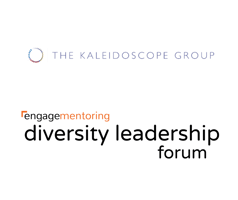Almost three years ago, many organizations were faced with various crucial decisions around...
The Challenges of Diversity in the Workplace
I was recently accepted to the inaugural cohort of the Proverbs University DEI Certification program with Dr. Kristal Walker. I am appreciative of a space to not just explore and discuss challenges of doing this work in driving diversity, equity, inclusion, and belonging, but also to share the common pitfalls and the components of an effective strategy to move DEIB initiatives forward.
In a recent discussion, we explored some of the areas where DEIB efforts fall short. Though there are many challenges, from the lens of my experiences, I would like to hone in on a few:
1. Intentional strategy: When there is no clear strategy for DEI, it makes it more challenging for key outcomes to be identified. A clear and data-informed DEI strategy will be tied to key business priorities.
2. Leadership buy-in: Engaging stakeholders at all levels is important, but as an HR or DEI Leader, making real change starts with executive buy-in. It is so important that the space be created for crucial conversations around DEI to occur. This allows for the opportunity for leaders to engage and connect personally to their “Why” for DEI and it creates opportunities for advocacy and allyship to show up.
3. Focus on attracting, developing and retaining a diverse talent pool: If companies do not make diversity, equity, inclusion and belonging a priority by demonstrating intentionality in actions and in dollars to attract, retain and nurture a diverse talent pool, it adversely impacts the organizational culture and the bottom line.
3. Recognizing ensuring access to mentoring relationships is a priority: Access to relationships in the form of mentoring is transformative within organizations in driving DEIB and addressing the gaps that are vital to any DEI strategy. The benefits of a mentoring strategy are to help remove barriers, build community, cultivate relationships inside and outside of the organization, and develop cultural competency.
Diversity, equity and inclusion is at the top of mind for many organizations. What does DEI mean to me? In full transparency, it was not always at the top of my mind and discussion. Long before DEI became “popular”, I knew the battles I endured being a woman of color and feeling I had to work harder to prove myself. I have been the only female executive on a majority white, male team. I have experienced the discomfort of feeling tokenized.I had to get to a place where I was not afraid to be a process challenger, seek support from leaders, and make myself visible in highlighting the risks of inaction. After all, investing in DEI is not just about what can be gained, it’s also what can be lost.
At Engage Mentoring, we recognize that formalized mentoring is no longer a nice to have, but a need to have and we are proud to work with companies of all sizes, not just enterprises. We have a scalable and robust product offering that makes the offering easy and impactful.
Yalonda Brown is a seasoned professional whose expertise spans over 20 years in both the private and public sectors. Her drive and self-determination has resulted in a myriad of demonstrable accomplishments as an intuitive leader, thought partner, and high functioning performer. Yalonda serves as the President of Diversity Initiatives for Engage Mentoring where she leads the national expansion of diversity-focused mentoring and leadership programs for companies, universities, and nonprofits.



